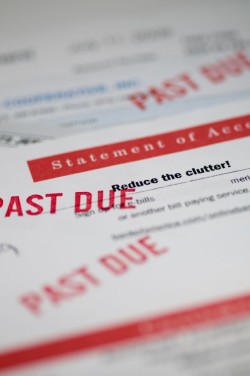Top Class Actions’s website and social media posts use affiliate links. If you make a purchase using such links, we may receive a commission, but it will not result in any additional charges to you. Please review our Affiliate Link Disclosure for more information.

California plaintiff Dena Phillips accused Enhanced Recovery Company of Jacksonville, Fla., of unlawfully calling and harassing her and her husband over money they allegedly owed to AT&T. Beginning in December 2013, Enhanced Recovery allegedly began placing calls to Phillips’ and her husband’s cell phones at “an annoying and harassing rate, calling Plaintiff and her husband every day.”
During a conversation with Phillips’ husband, Enhanced Recovery demanded immediate payment of the alleged debt without informing Phillips’ husband of his right to dispute the debt, even though he had disputed it, according to the unfair debt collection lawsuit. The debt collector threatened to garnish Phillips’ husband’s wages if he did not pay the debt, the FDCPA lawsuit said.
The debt collector allegedly informed Phillips’ husband that the company would “seek alternative ways to have the alleged debt paid if Plaintiff’s husband did not pay,” something Phillip’s husband interpreted to mean the company would sue him.
Despite requests that Enhanced Recovery cease calling, the agency continued to pursue the couple, according to the unfair debt collection lawsuit, using an autodialer system to place repeated collection calls.
Neither Phillips nor her husband ever provided their cell phone numbers or consent to be contacted by Enhanced Recovery. Even if they had, according to the debt collection lawsuit, Phillips’ husband instructed them to stop calling. The calls resulted in charges incurred by Phillips for incoming calls.
Congress passed the Fair Debt Collection Practices Act in 1977 to establish legal protection from abusive debt collection practices. The law forbids debt collectors from engaging in harassing tactics, using abusive language, threats or contacting consumers after the consumer has notified the collector they do not wish to be contacted.
Debt collectors may not collect debts not owed by the debtor, such as debts discharged in bankruptcy or previously settled by the debtor. The law also prohibits improper reporting to credit agencies. The types of debts that may be reported to credit agencies are clearly defined, yet many companies report unqualified debt even if they have no right to collect on it.
Courts have awarded consumers millions of dollars stemming from class action lawsuits for violations of the FDCPA.
Join a Free Unfair Debt Collection Class Action Lawsuit Investigation
If a lender or debt collector engaged in unfair debt collection practices, you may have a legal claim and could be owed compensation for violations of the Fair Debt Collection Practices Act (FDCPA).
DISCLAIMER: Debt collection itself is not illegal. However, debt collection firms collecting on consumer debts must adhere to the FDCPA. Even though debt attorneys are investigating these companies, their debt collection practices may be legal.
ATTORNEY ADVERTISING
Top Class Actions is a Proud Member of the American Bar Association
LEGAL INFORMATION IS NOT LEGAL ADVICE
Top Class Actions Legal Statement
©2008 – 2024 Top Class Actions® LLC
Various Trademarks held by their respective owners
This website is not intended for viewing or usage by European Union citizens.















One thought on Debt Collection Lawsuit Filed Against Enhanced Recovery Co.
ERC out of Idaho has been contacted me relentlessly and saying that they want my information and I refused to give it to them what are my options